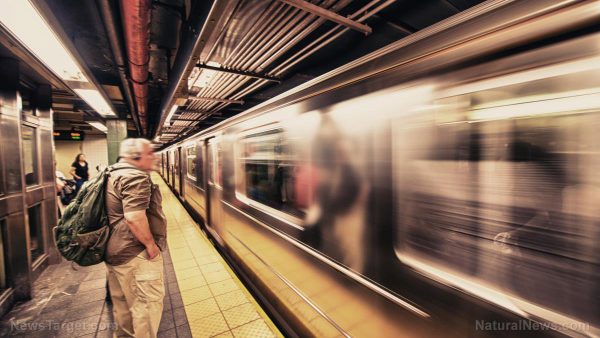 Parler
Parler Gab
Gab
Authoritarians are peeping toms
For whatever reason, the anti-social despots in government love to watch everything that people do. These peeping toms are not content with simply monitoring what they can see; they also want to monitor what they cannot see going on inside your head. The powers that be (TPTB) also love money, and more of it can be made if the despots in charge are able to probe the inner workings of your mind in order to sell you more stuff you probably do not need. "Why provide the service you're supposed to provide when you can snoop on people's expressions and, wait for it, use the data to 'maximize advertising and retail revenue?'" Macpherson further writes about what he was told by National Rail, the UK's train service, is one of the purposes of the spying program. "But seriously, trust us, the main thing was making sure everyone was happy," he jokes. It turns out that many members of the British public who found out way after the fact about the program are upset that it exists, and that they were never told about it. "The AI legend is a legend," noted someone in the comments. "Behind any AI, there are software programmers, people, whose knowledge is what makes any AI work and do what it was programmed to do." "If the developer guys made a mistake the software will be faulty, too like wrong decisions similarly to electric cars slaughtering walking dogs. Because of it they are extremely dangerous and of course an ideal scape goat for any harm. No one is responsible, the AI did it." Another added similar skepticism to the conversation concerning the facial recognition aspect of the technology. "With the COVID shots, people got 'inbuilt' nanotech sensors," this person added about how the "fully vaccinated" are being watched. "My bet is on them." AI is sucking the life and soul out of the world. Find out more at FutureTech.news. Sources for this article include: Expose-News.com NaturalNews.com25 House Democrats preparing to call for Biden to end reelection bid
By Laura Harris // Share
Pelosi now claims it’s LEGITIMATE to question Biden’s mental state after initially backing him
By Ramon Tomey // Share
World Economic Forum’s Klaus Schwab accused of SEXUAL HARASSMENT
By Ramon Tomey // Share
Reporters blame “right-wing media” for their failure to disclose Biden’s infirmity
By News Editors // Share
Governments continue to obscure COVID-19 vaccine data amid rising concerns over excess deaths
By patricklewis // Share
Tech giant Microsoft backs EXTINCTION with its support of carbon capture programs
By ramontomeydw // Share
Germany to resume arms exports to Israel despite repeated ceasefire violations
By isabelle // Share










